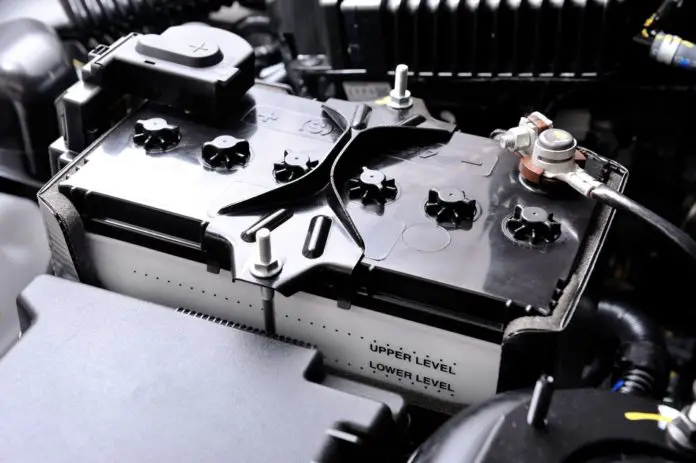
Are you in desperate need to replace your old dead car battery with a new one on a restricted budget? Here is all you need to know about car batteries and their cost.
How much does a car battery cost? According to experts, a good battery can cost up to $100. They estimate that the approximate cost of a normal battery can range between $60 and $120 whereas premium and high-quality batteries can have their prices go higher, with the least expensive one being around $75 a piece.
Although, the above answer to your question is a pretty accurate calculation, there are still various factors that it depends on.
1. Will you be purchasing your battery from a well-known brand?
2. What is the size of your car engine and of the battery that you need?
3. Should you even be replacing it or look into charging the old one?
There are just too many other elements to consider!
Car Battery Cost According to the Car Size
It’s no surprise that an engine of a bigger car would be relatively larger in size and would obviously need a bigger battery to turn it over. A bigger battery will provide a vehicle with more amps of electric current per hour and will need a greater amount of material and sources for its manufacturing than a smaller one.
In conclusion, the cost of the finished product that is larger in size will be higher. The battery sizes that are the most common are 25, 65, and 75. Once again, the price does depend on the brand, warranty duration, and other details, but the cost of these sizes is known to vary between $40 and $90.
Battery Cost for Latest Vehicles
Latest models of cars and luxury vehicles are usually crammed with a wide range of features. They have an elaborate battery monitoring system and therefore the battery cost ranges from around $150 to $350 and above.
The investment is necessary as these luxury cars come with alternators that are regulated and managed by the engine control unit (ECU) to monitor the required power. These complex systems require a battery with silver calcium construction.
To fulfill the needs of these extravagant vehicles, expensive car batteries are required. These batteries are relatively durable, hold the charge over prolonged periods, and are less prone to damage from temperature fluctuations.
In this case, opting for a cheaper battery will be like jumping from one bad situation to one that is worse. Doing so can cause starting issues in your luxury car as well as other electrical system problems might arise.
Before you invest a bulk of your money, you need to figure out if you actually need to replace your car battery.
Car Battery Types and Their Costs
Type 1. Lead/Acid Batteries
The lead/acid battery is the most commonly used type of rechargeable car battery. Although it doesn’t have a very high energy-to-weight and energy-to-volume ratio, it does have the amazing ability to supply high surge currents.
These batteries are typically rated at about $70 to $130 or so. The relatively lower cost makes them feasible to be used in motor vehicles.
Type 2. Calcium-Calcium Batteries
Calcium-calcium batteries are not your typical lead-acid technology based batteries. These feature calcium plates opposed to the conventional lead plates found in lead/acid batteries mentioned above.
They are not as common as the lead ones and also require a higher charging voltage. The price of these durable, high-quality batteries goes up to a maximum of $250. It is necessary that you charge them using the 12V Calcium mode.
Type 3. Lithium-Ion Batteries
Lithium-Ion batteries, also commonly known as Li-ion, are more durable and deep-cycled. While they are incompatible with most of the common vehicles on the road, in the past years, hybrids and electric cars have started using them.
Although they have a relatively shorter lifespan, they are capable of storing more energy and weight quite less in comparison. These batteries have a starting price of $1000.
Additional Installation Costs
The cost of replacing a car battery doesn’t only limit to purchasing a new one. The installation also takes a lot of effort and some expense. Sometimes manufacturers of car batteries provide free installation service to their customers, which can save you a lot of money and the hassle of finding a mechanic for the job.
However, if you don’t have that option or if you think that you’re not real handy that way then hiring a professional to do the deed is your best option.
A car battery replacement service can cost you anywhere between $50 and $100, depending on the location of your car, the complexity of your electrical system and the time it will take to carry out the installation.
The last scenario, which is the most unfortunate one, is that your battery dies in the middle of the road. In that case, you will have to rely on any roadside assistance program available near you and the installation will roughly cost you $120.
Now before you invest a bulk of your money, you need to figure out if you actually need to replace your car battery.
When Do You Need to Purchase a New Car Battery?

If you’ve tried all DIY methods to charge your battery and the problem still persists, it’s likely that the electrical system of your car might be where the actual problem lies. In that case, your battery is prone to going flat or weak repeatedly.
Consider buying a new battery if:
• Your engine taking extra time to start. With time, the elements inside a battery wear out and become ineffective therefore the battery takes longer to establish a charge for the starter, causing a delay in the turning over of the engine.
• The lights turn dim and other electrical malfunctions occur. The battery is responsible for powering the electronics of a car, if it becomes faulty, it will fail to provide power to the appliances.
• The check engine light is on. The check engine light of a car is likely to light up if the car battery is running out of power.
• Your car smells bad. Battery damage or an internal short circuit can cause gas leakage. If this is the case, foul smell will take over your car. It is important to get the leaked battery fixed or replaced as soon as possible.
• The connections have been compromised. If the terminals of the battery contain a white, ashy substance, it means that the battery has corrosion issues.
• Your battery has lived its life to the fullest. Most of the car batteries have an extended lifespan. They last for about 5 years or more without any need for replacement or recharging. But even the ones that are of the highest quality run out of power with time.
After checking thoroughly, if you believe your battery is irreparable, consult a professional and let them test your battery to come up with an appropriate solution for you. Once you are certain that a new battery is what you need, go for it. Remember, the investment is going to be worth it.
Things to Keep in Mind While Purchasing a New Car Battery
When you decide to purchase a new car battery and get it installed, remember you don’t want to end up in more trouble than before. Therefore it is important to consider some important factors before making your final decision.
Here are some things to keep in mind while purchasing a new car battery:
• Consult a mechanic and choose the right battery size for your car. It will be the one that fits accurately in your battery tray.
• Check the manufacturer date on the battery and make sure that it isn’t older than six months.
• Remember, the higher the reserve capacity, the better.
• Make sure that the battery you are about to purchase meets the power requirement of your vehicle.
• Choose batteries that require low or no maintenance to save yourself from the unnecessary hassle.
• It is highly recommended that you purchase a battery that has an extended warranty period so that you can address any potential issues easily.
Now that you know all about the cost of car batteries, figure out if you need one, and get going!





